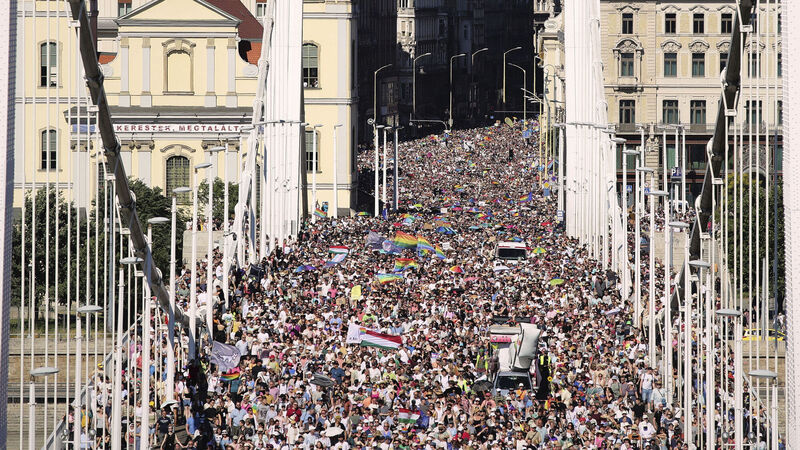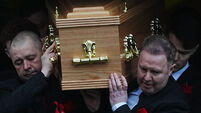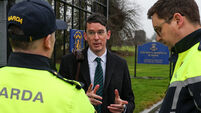'Extraordinary to bear witness': Irish politicians reflect on Budapest Pride

Budapest Pride participants cross the Elisabeth Bridge in Budapest, Hungary, on Saturday where an estimated 100,000 people took part in the protest. Picture: Rudolf Karancsi/AP
Banning Pride marches in Hungary "badly backfired" on Viktor Orbán, Green Party leader Roderic O'Gorman said, after he joined over 100,000 people for Budapest Pride.
A record number of people, from Hungary and across Europe, took to the streets for the country's main Pride march on Saturday despite the threat of legal consequences and fears around counter-protests.














